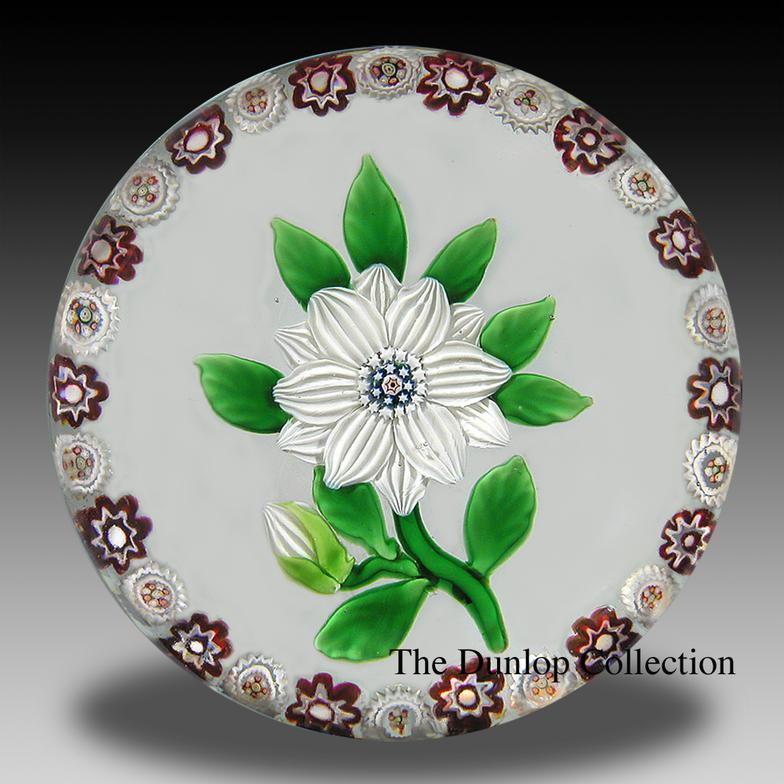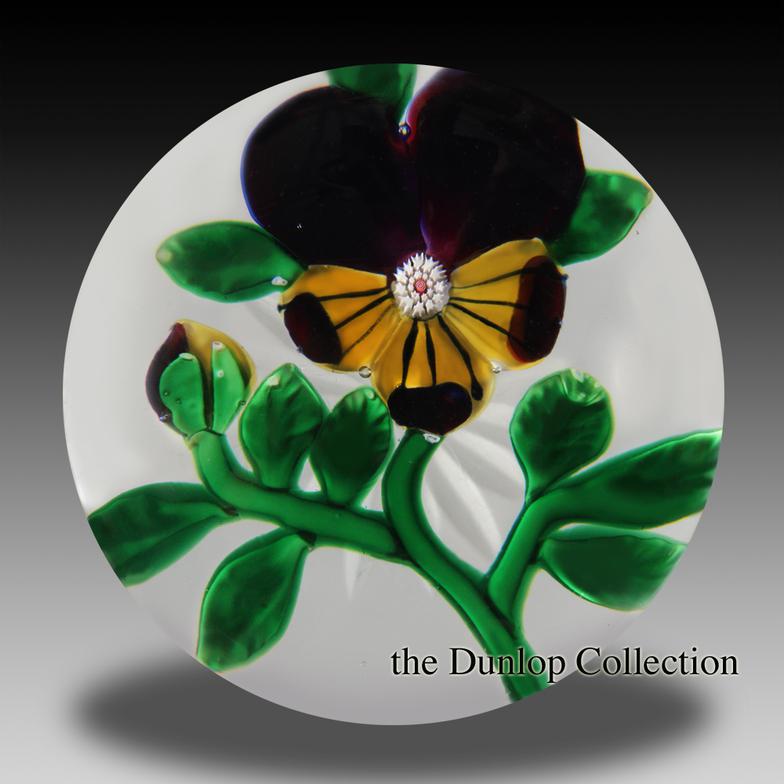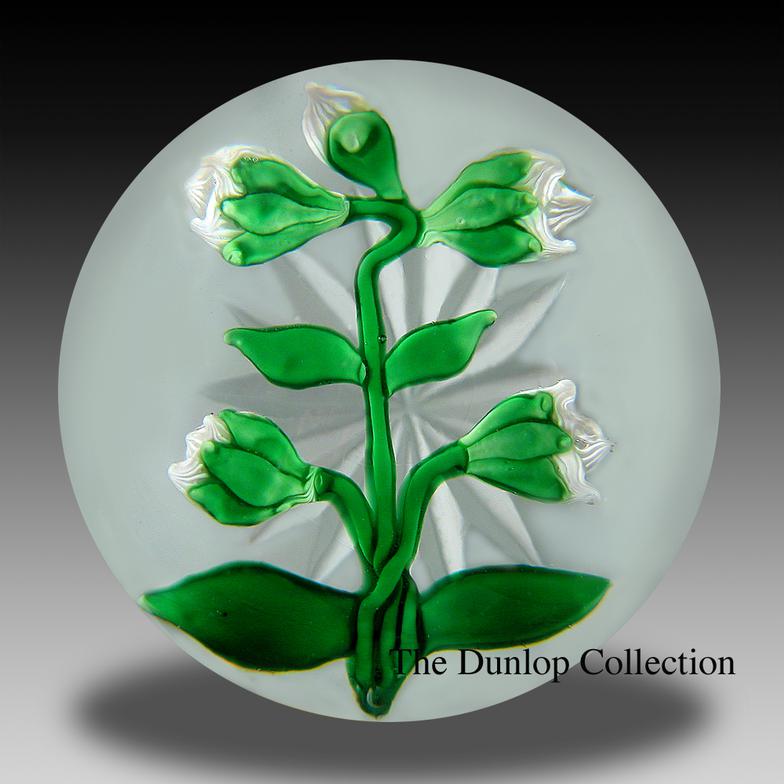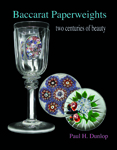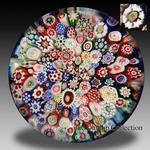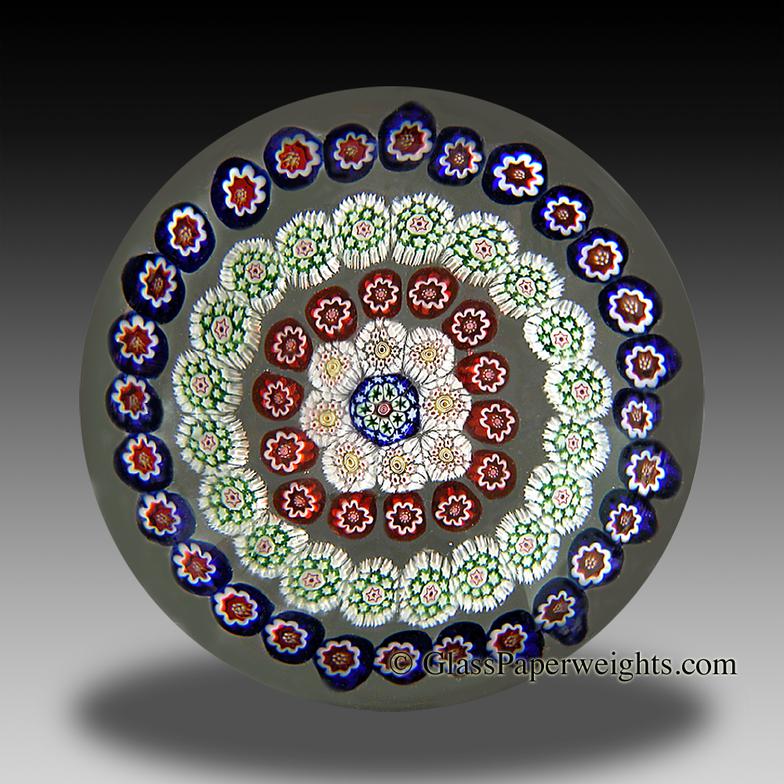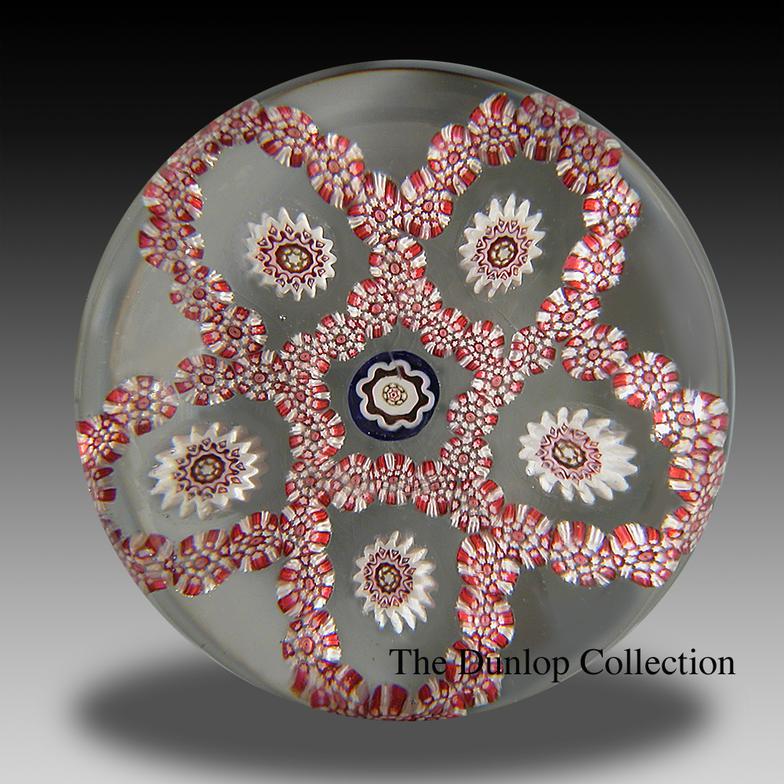images on this website are copyrighted by Papier Presse 2014
A few simple millefiori weights were made at Baccarat in 1946. Then in 1952 Paul Jokelson approached them with the idea of making sulphide weights again. The following year, 1953, the renaissance of paperweight making at Baccarat began. They released their first sulphide weights since the nineteenth century that year, after a considerable amount of trial and error rediscovering the process they had not used in close to a century. The first millefiori weights were made in 1957, and lampwork subjects followed later. They made some sulphide subjects and simple concentrics in large numbers for the gift shop market. After a decade or more of refining their millefiori and lampwork skills, better, more complicated designs started being produced as annual limited editions in 1970. These continued through 2002, when weight production again ceased.
Excerpted from The Dictionary of Glass Paperweights, Paul H. Dunlop, Papier Presse 2009.


